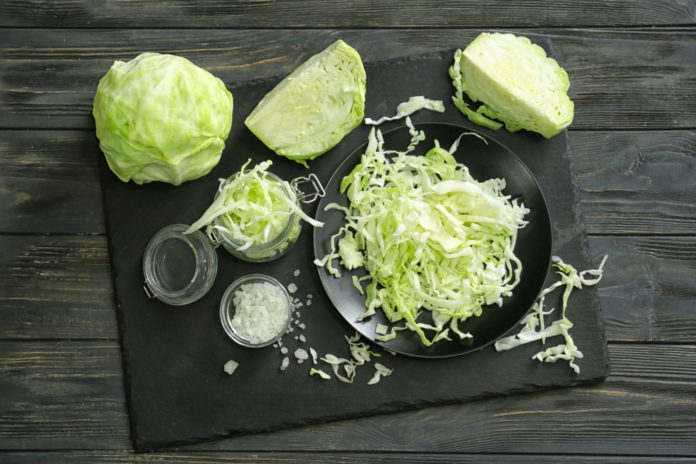When we think of cabbage, the first thing that comes to mind is coleslaw during summer or corned meat and cabbage for St. Patrick’s Day. This common cruciferous veggie is so rich in nutrients that you may want to eat it more often than once or twice per year. Learn about the many health benefits of cabbage.
What is cabbage?
As early as 4,000 B.C., cabbage was one of the first vegetables known to be consumed in China. This leafy vegetable is part of the Brassica family which also includes broccoli, cauliflower and Brussels sprouts. The three different colors are green, red and savoy. It can be eaten raw, cooked or even steamed.
In the Middle Ages cabbage was referred to as “medicine for the poor” because of its low price and health benefits. If you’re trying to improve your diet, adding cabbage to your menu is a great place to begin.
Benefits Of Cabbage
Better Digestion: You may have heard that you should “eat your roughage,” of which cabbage is an excellent source. The fiber and water in cabbage can help maintain a good digestive system, and prevent constipation. Sauerkraut is a great way to increase your probiotic intake, which is essential for a healthy digestive system and gut.
Weight loss: The cabbage is rich in fiber, has no fat and only 33 calories per cup. It is recommended to those who are trying to lose weight because it is so full of nutrients and fiber.
Lowers Cholesterol Cabbage can also help lower cholesterol. Its fiber and nutrients are not absorbed by the blood but bind to bile acid in the colon. They then pass through the stool. Cooked spinach has greater cholesterol-lowering properties.
Immune booster: The cabbage is an excellent source of vitamin C, which is essential to building a strong immune system.
Reduces inflammation: An inflammation can cause unnecessary pain and suffering, and it may be the start of many other diseases and conditions. A amino-acid called glutamine is found in cabbage. It has powerful anti-inflammatory properties and can help with allergies, arthritis and joint pain. Cabbage is one of the top 10 foods that contains glutamine.
Promotes Brain Health Purple Cabbage is an excellent source of nutrients. It contains the antioxidants anthocyanin, and vitamin K which improves focus and brain functions. Vitamin K, which is often overlooked, can help you to resist diseases such as Alzheimer’s or dementia. Anthocyanin also reduces brain plaque and slows down the decline in short-term and long-term memories.

